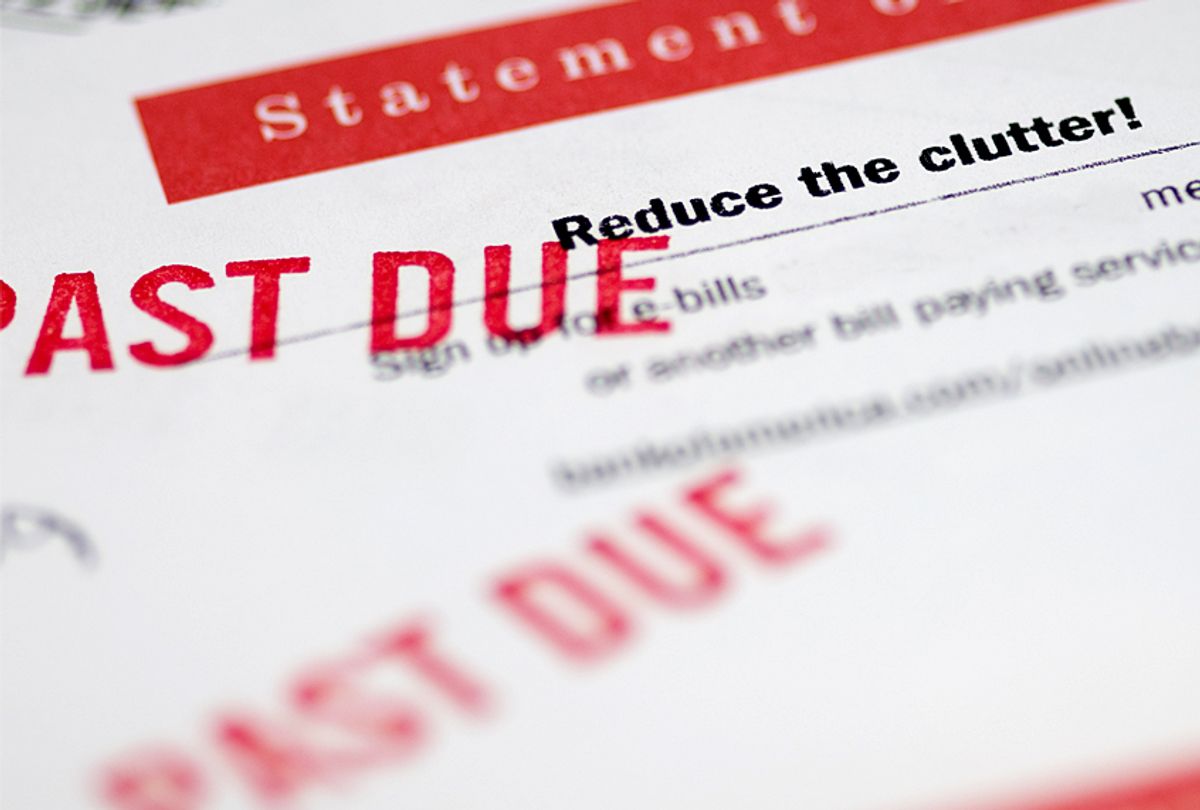A new report by the ACLU reveals how the private debt collection industry has been able to manipulate America's court system to target the financially disadvantaged.
Even though Congress abolished debtors' prison in 1833, private debt collectors have still managed to manipulate the court system to have debtors thrown in jail for the inability to pay up, according to the ACLU. They do so by filing lawsuits which, more than 95 percent of the time, will be decided in favor of the collector. After that, private debt collectors will ask the court to compel a debtor to appear for "judgment debtor examinations." If the debtor does not show up, the private debt collectors will often ask the judge to issue a civil warrant so that the debtor can be arrested.
"Our investigation found that many people missed their court dates because of work, childcare responsibilities, lack of transportation, physical disability, illness, or because they didn’t receive notification of the court date," Jennifer Turner, Human Rights Researcher for the ACLU's Human Rights Program, wrote. "We found two cases in which elderly women missed hearings because they were terminally ill. They died shortly after warrants were issued for their arrest. The threat of arrest is an incredibly powerful tactic for collectors."
In a separate piece for the ACLU, Turner wrote that the courts have become "mills for these companies, approving without evaluating scores of arrest warrants, wage garnishments, property seizures, default judgments, and other legal actions against consumers accused by debt collectors of owing money."
The ACLU included a number of harrowing stories of people whose lives were ruined by the new partnership between private debt collectors and the court system.
A mother of three in Indiana was jailed for missing hearings over medical bills for her cancer treatment. She was physically unable to climb the stairs to the women’s section of the jail, so she was held in a men’s mental health unit.
A Georgia woman was arrested while caring for her terminally ill mother. A debt collection company had bought a 6-year-old rental debt her landlord claimed she owed after evicting her from her trailer home. She was jailed overnight. Her mother died two days later.
In Missouri, a single mother of a toddler took out a high-interest payday loan of $425. She wasn’t able to pay it back, and the creditor sued. She didn’t go to court and was arrested and jailed for three days.
A Utah man committed suicide while jailed for failing to appear in court over an unpaid ambulance bill. He killed himself shortly after he was asked whether he had the money to post bail.
The ACLU's report, aptly titled "A Pound of Flesh," proposed legislation that would bar courts from issuing arrest warrants in debt collection proceedings and protect people from being jailed over debt that they weren't notified about, can't afford or aren't legally obligated to pay.



Shares